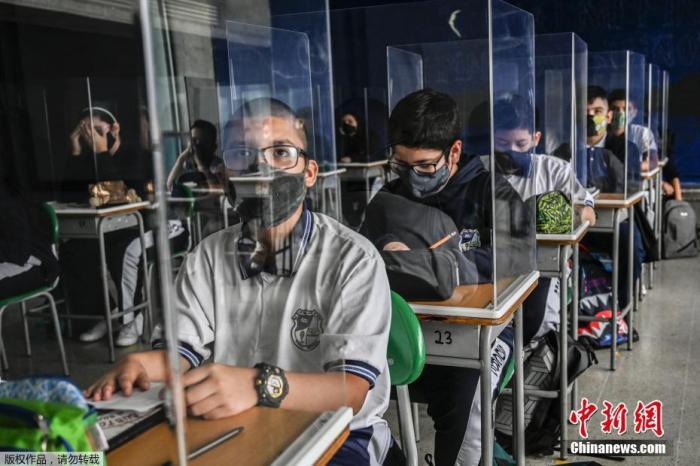China News Service, May 10, The British "Financial Times" published an article on the 10th that "Chinese vaccines are the main force in Latin America."
The article said that although many Latin American countries have called on the United States for help, the number of vaccines released by the latter "appears insignificant."
The report also quoted British scholars as saying that "China's leading position as a health power is increasing."
According to reports, the British "Financial Times" analyzed the data provided by various governments and found that when Latin America is fighting the third wave of the epidemic, Chinese vaccines are acting as the main force of vaccination.
Previously, although US vaccine manufacturers have signed agreements to supply vaccines to Latin American countries in the future, "but so far only Pfizer has delivered vaccines on a large scale to the 10 largest countries in Latin America."
On January 17, 2021, local time, in Sao Paulo, Brazil, Brazil's first batch of new crown vaccinators received the Chinese vaccine on the same day. Monica Karazhan, a 54-year-old nurse from the State of Sao Paulo, became the first Brazilian to receive the Koxing vaccine.
For a long time, officials from various countries in Latin America have been calling for more help from the United States, a traditional power in the region.
In March 2021, President Abinadre of the Dominican Republic also posted a message on social networking sites, calling on US President Biden to spare the US stock of AstraZeneca vaccines.
The British "Financial Times" pointed out that before this, US Secretary of State Blincoln stated that the United States had distributed 4 million doses of vaccine to Canada and Mexico.
He emphasized that the United States has contributed US$2 billion to the WHO-led "New Crown Vaccine Implementation Plan" (COVAX) and has pledged to contribute another US$2 billion.
However, the article said that the huge demand for vaccines compared with the population of Latin America and the Caribbean, the number of vaccines released in the United States "appears insignificant."
On February 25th, local time, in a school in Itagui, Colombia, in order to prevent the epidemic, students wear masks and listen to classes in a baffle set up.
At present, the three most populous countries in Latin America—Brazil, Mexico, and Colombia—are among the countries hardest hit by the recent rebound in the epidemic.
The article described, “The rich are flying northward to get vaccinated in cities such as Miami in the United States, while the poor can only wait for the government to provide the vaccine, and the shortage of supply hinders the implementation of the government’s vaccination plan.”
The article pointed out that the governments of Latin American countries have the financial resources to purchase the necessary vaccines.
But compared to the United States and Europe, they are in a disadvantaged position-because most facilities in the region that can produce vaccines from scratch have been shut down in the past few decades and moved to lower-cost Asian regions.
The region also has to rely on imports to obtain scarce APIs.
Brazil, Mexico and Argentina are all implementing related projects to rebuild their local vaccine production or filling capacity.
Claire Wenham, assistant professor of global health policy at the London School of Economics and Political Science, said that more vaccinations in Latin America and other developing countries come from China. "This reflects the trend in the global health field. We see China as a health power. The dominant position is increasing".
Bloomberg pointed out on the 6th that countries in the world lacking vaccines are increasingly inclined to seek help from China, although the United States has been trying to emphasize its vaccine supply capabilities.
Huang Yanzhong, a senior researcher at the Foreign Relations Association of the US think tank, said: "China has not only become the largest vaccine exporter, but in many countries, Chinese vaccines have even become the only option."
On May 10, Chinese Foreign Ministry spokesperson Hua Chunying stated at a regular press conference that China will continue to work with the international community to promote equitable access to vaccines in developing countries, and contribute to the early joint victory of mankind against the epidemic.
She said that China has announced that it will provide 10 million doses of vaccine to the "New Crown Vaccine Implementation Plan", mainly for the urgent needs of developing countries.
The Chinese dialect must do it, and we are in close communication with the WHO on this.

